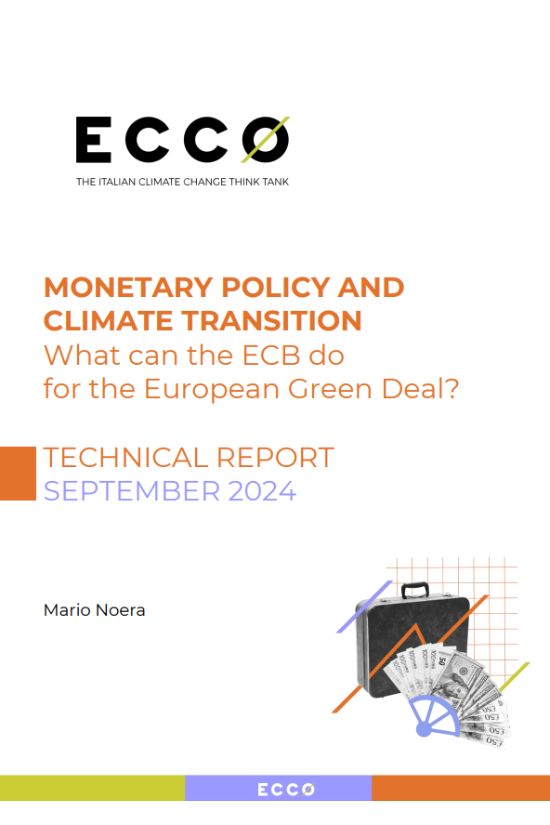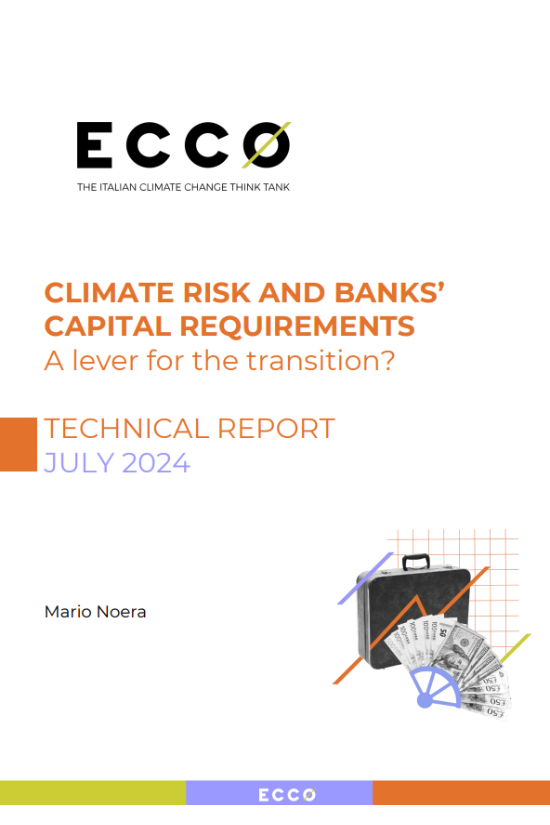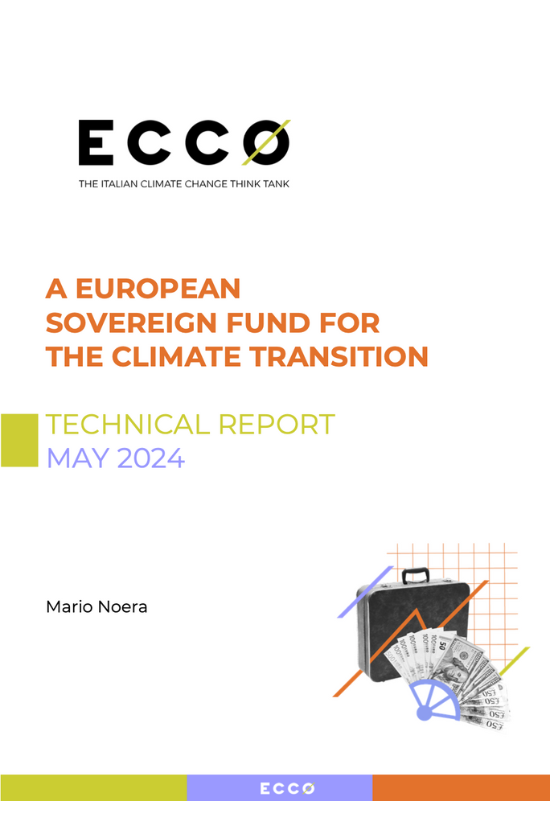Publications
Search
Filters
Authors
/ Alexandra Scott
/ Andrea Ghianda
/ Annalisa Perteghella
/ Beatrice Moro
/ Carolina Bedocchi
/ Caterina Molinari
/ Chiara Di Mambro
/ Chiara Mariotti
/ Chloe Pagliaro
/ Costanza Scano
/ Davide Panzeri
/ ECCO think thank
/ Eleonora Cogo
/ Federico Tassan-Viol
/ Filomena Annunziata
/ Francesca Andreolli
/ Francesca Bellisai
/ Gabriele Cassetti
/ Giovanni D'Amico
/ Giulia Colafrancesco
/ Giulia Giordano
/ Giulia Novati
/ Giulia Signorelli
/ Ilaria Mazzocco
/ Lorena Stella Martini
/ Luca Bergamaschi
/ Luca Iacoboni
/ Mario Noera
/ Marta Lovisolo
/ Massimiliano Bienati
/ Matteo Leonardi
/ Matteo Viola
/ Michele Governatori
/ Nicolas Drago
The European Central Bank (ECB) and the National Central Banks (NCBs) play a crucial role in the transition towards a net zero economy. This report analyses the actions of the European Central Bank with the aim of identifying ways in which the existing institutional structure and current macroeconomic context could allow it to provide more effective support to the European Green Deal.
Empirical evidence shows that capital requirements have a significant influence on both the volume of credit and the level of bank interest rates, and demonstrates that the use of macroprudential capital requirements can play a decisive role in mitigating the risks of transition generated by aggressive decarbonisation policies. These findings therefore show that macroprudential policies are a necessary complement to other climate policies in order to reduce the exposure to risk of financial intermediaries.
For the European Union, the estimated investment needed to implement the Green Deal would require a total annual investment in the 2021-2030 period of approximately 1,285 billion per year, equal to 8% of GDP of the EU in 2022. The setting up of a European energy and climate fund is therefore legally and technically feasible, and should be a decisive theme of political debate, particularly in light of the upcoming European Parliamentary elections and the renewal of the Commission.
The European Central Bank (ECB) and the National Central Banks (NCBs) play a crucial role in the transition towards a net zero economy. This report analyses the actions of the European Central Bank with the aim of identifying ways in which the existing institutional structure and current macroeconomic context could allow it to provide more effective support to the European Green Deal.
Empirical evidence shows that capital requirements have a significant influence on both the volume of credit and the level of bank interest rates, and demonstrates that the use of macroprudential capital requirements can play a decisive role in mitigating the risks of transition generated by aggressive decarbonisation policies. These findings therefore show that macroprudential policies are a necessary complement to other climate policies in order to reduce the exposure to risk of financial intermediaries.
For the European Union, the estimated investment needed to implement the Green Deal would require a total annual investment in the 2021-2030 period of approximately 1,285 billion per year, equal to 8% of GDP of the EU in 2022. The setting up of a European energy and climate fund is therefore legally and technically feasible, and should be a decisive theme of political debate, particularly in light of the upcoming European Parliamentary elections and the renewal of the Commission.


